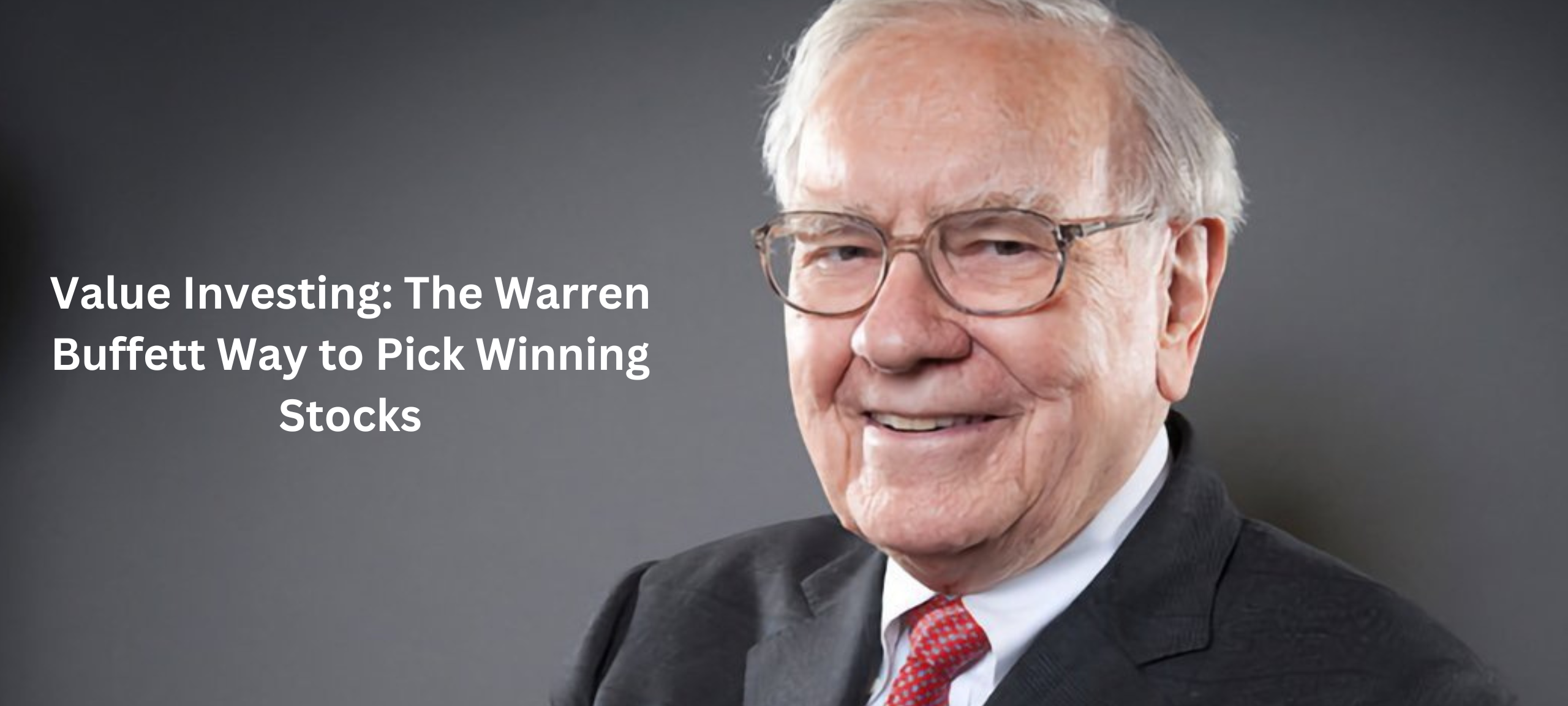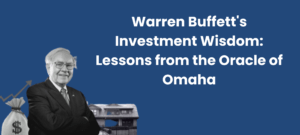Introduction: Value investing is an investment strategy popularized by the legendary investor Warren Buffett. This approach focuses on identifying undervalued stocks in the market and investing in them for the long term. In this blog post, we will explore the principles of value investing and delve into the Warren Buffett way of selecting winning stocks.
Understanding Value Investing:
Value investing involves buying stocks that are trading at prices lower than their intrinsic value. The goal is to find companies with solid fundamentals that are temporarily undervalued by the market. This strategy emphasizes a long-term perspective and seeks to capitalize on the market’s tendency to overreact to short-term events.
- Analyzing Fundamentals: Warren Buffett emphasizes the importance of analyzing a company’s fundamentals before investing. This includes examining its financial statements, such as the balance sheet, income statement, and cash flow statement. Key indicators to look for include low debt levels, consistent earnings growth, strong cash flow, and a competitive advantage in the industry.
- Identifying Moats: A significant aspect of value investing is identifying companies with sustainable competitive advantages, also known as economic moats. These can be in the form of strong brands, patents, network effects, or high barriers to entry. Warren Buffett believes that companies with enduring moats have a higher likelihood of delivering long-term value.
- Margin of Safety: Another crucial concept in value investing is the margin of safety. This refers to the difference between the estimated intrinsic value of a stock and its current market price. By purchasing stocks with a significant margin of safety, investors can protect themselves against potential downturns or unforeseen events.
- Long-Term Focus: Value investing is a patient and long-term-oriented strategy. Warren Buffett advises investors to have a mindset of owning a business rather than merely trading stocks. By focusing on the underlying business’s performance and long-term prospects, investors can avoid being swayed by short-term market fluctuations.
- Diversification and Concentration: While diversification is generally encouraged in investing, Warren Buffett believes in concentrated bets on his best ideas. He suggests that investors should focus on a few high-quality companies that they thoroughly understand rather than spreading their investments too thin. This approach allows for better monitoring and decision-making.
- The Power of Patience: Patience is a key virtue in value investing. Warren Buffett advises investors to resist the temptation of frequent buying and selling. Instead, he advocates for holding investments for the long term, allowing the compounding power of returns to work in favor of investors. Value investors understand that successful investing takes time and are willing to wait for the market to recognize the true value of their investments.
- Contrarian Thinking: Value investing often involves contrarian thinking. Warren Buffett famously said, “Be fearful when others are greedy and greedy when others are fearful.” This means that value investors are willing to go against the crowd and buy stocks when they are out of favor or facing temporary challenges. By doing so, they position themselves to benefit from the potential upside when the market sentiment changes.
- Continuous Learning and Adaptation: Value investing requires continuous learning and adaptation. Warren Buffett is known for his voracious reading habits and constantly seeking new knowledge. Investors should stay informed about industry trends, economic developments, and evolving market dynamics. By staying intellectually curious, investors can refine their investment strategies and make informed decisions.
- Managing Risk: While value investing seeks to identify undervalued stocks, it’s essential to manage risk effectively. Warren Buffett advises investors to have a margin of safety and avoid taking on excessive debt or investing in businesses they don’t understand. Diversification within a value investing portfolio can also help mitigate risk by spreading investments across different industries and sectors.
- Psychological Discipline: Value investing requires psychological discipline to stick to a strategy during market downturns or periods of underperformance. Warren Buffett emphasizes the need to remain rational and not let emotions drive investment decisions. Having a well-defined investment plan and sticking to it can help investors navigate turbulent market conditions with confidence.
- Investor Mindset: Value investing requires adopting the mindset of a business owner rather than a stock trader. Warren Buffett emphasizes the importance of understanding the underlying businesses in which you invest. This mindset encourages investors to focus on the long-term prospects, cash flows, and competitive advantages of the companies they own, rather than being swayed by short-term market movements.
- Avoiding Market Timing: Value investors tend to avoid market timing, as it is notoriously difficult to predict short-term market movements consistently. Instead, they focus on the intrinsic value of a company and make investment decisions based on its long-term potential. By taking a disciplined approach and avoiding the urge to buy or sell based on short-term market fluctuations, investors can reduce the risk of making poor investment decisions.
- Buying and Holding: Value investors typically have a buy-and-hold strategy. They invest in companies they believe are undervalued and hold onto those investments for an extended period, sometimes even for years or decades. This approach allows investors to benefit from the compounding of returns over time and reduces transaction costs associated with frequent buying and selling.
- Taking Advantage of Market Inefficiencies: Value investors exploit market inefficiencies to uncover undervalued opportunities. This can involve analyzing companies that are out of favor with investors, identifying mispriced stocks due to temporary market conditions or investor sentiment, or uncovering hidden value in assets such as real estate or intellectual property. By diligently researching and identifying these inefficiencies, value investors can potentially achieve superior returns.
- Continuous Evaluation and Portfolio Management: Value investing requires ongoing evaluation and management of the portfolio. Warren Buffett advises investors to regularly review their holdings and assess whether the investment thesis remains intact. This involves monitoring changes in the business landscape, industry dynamics, and competitive forces. By regularly evaluating the performance and prospects of investments, investors can make informed decisions regarding buying, holding, or selling stocks.
- Long-Term Performance and Patience: Value investing is a long-term strategy, and investors should not expect immediate or consistent short-term gains. Warren Buffett has emphasized that value investing can go through periods of underperformance. However, over the long term, a disciplined approach to value investing has the potential to deliver substantial returns. Patience and a focus on the long-term horizon are key attributes for successful value investors.
Conclusion :
Value investing, as exemplified by Warren Buffett’s investment philosophy, offers a disciplined and time-tested approach to picking winning stocks. By focusing on a company’s intrinsic value, fundamentals, competitive advantages, and long-term potential, investors can make informed decisions and build a portfolio that stands the test of time. However, it’s important to note that value investin




